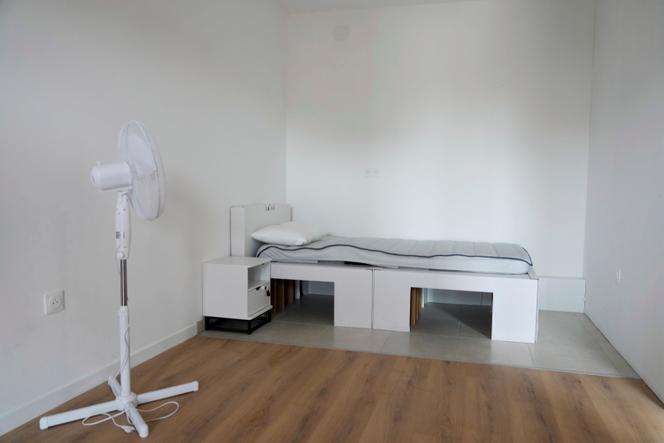


There were audible jeers at the presentation of the first rooms in the Olympic Village. As in Tokyo in 2021, the beds on which athletes will sleep this summer will be made of cardboard. After the Olympic Games, the beds will be recycled, the comforters offered to athletes and the 16,000 mattresses (designed notably from recycled fishing line) will be donated to organizations. The French army, Emmaüs, the Paris Opera ballet boarding school and the Tsuji hotel school will be the first beneficiaries. Using fewer resources and giving them a second life in order to limit waste: This is the aim of the 2024 Paris Olympics, which claim to be the most eco-friendly in history, and aim to halve their carbon footprint compared with previous editions.
On Monday, March 18, the organizing committee detailed the initial results of its strategy for a "more circular economy" Games. It was based on a new Olympic motto: "Less, better, for longer." The organizers were happy to report they had managed to reduce the number of furniture items from 800,000 to 600,000, and succeeded in getting at least 15% of products designed using recycled materials.
In addition to cardboard beds, furniture in the athletes' village will include coffee tables made from badminton shuttlecocks, poufs made from parachute canvas and chairs made from recycled bottle caps. In catering, Paris 2024 is committed to reducing the use of single-use plastic by 50% compared to the 2012 London Games. This will involve more returnable containers and the deployment of beverage fountains (water and soft drinks)... by Coca-Cola, historic sponsor of the Olympics and indisputable "world champion" of plastic pollution, according to the latest ranking by the association Break Free From Plastic.
It's no easy task for an event as gigantic and ephemeral as the Games to embrace "sustainability." "We started with a blank sheet of paper," admitted Caroline Louis, Paris 2024's circular economy manager, with a certain sense of self-mockery: "I'm the first circular economy manager for the Olympics, so at least we'll go down in history with that title!"
As it had done with its greenhouse gas emissions, the organizing committee has attempted to keep track of all the resources that will be used for the Games to determine its "material footprint." The vast majority (72%) comes from the 20 or so venues and infrastructures to be temporarily delivered, including judo at the ephemeral Grand Palais, beach volleyball at the Champs-de-Mars (the garden at the base of the Eiffel Tower) and skateboarding at Place de la Concorde. There will also be 12% from their fitting-out (furniture), 9% from public reception (12 million meals and snacks to be served), 6% from derivative products (mascots, souvenirs) and 1% from sports equipment (handball or volleyball pitch surfaces).
You have 42.17% of this article left to read. The rest is for subscribers only.
